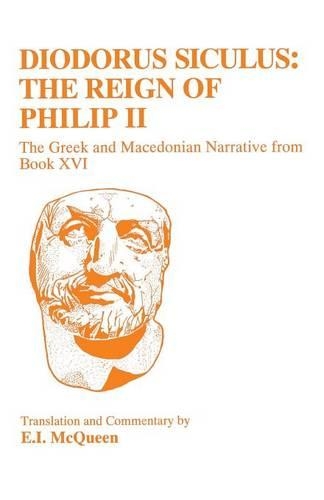
Diodorus Siculus: Philippic Narrative
(Paperback)
Publishing Details
Diodorus Siculus: Philippic Narrative
By (Author) Diodorus Siculus
Translated by E.I. McQueen
Volume editor E.I. McQueen
Bloomsbury Publishing PLC
Bristol Classical Press
1st January 1998
United Kingdom
Classifications
Tertiary Education
Non Fiction
Biography: historical, political and military
Literary studies: ancient, classical and medieval
European history
Ancient history
938.107092
Physical Properties
Paperback
176
Width 138mm, Height 215mm, Spine 12mm
266g
Description
This edition, one of the Bloomsbury Classics Companion Series, provides a translation and detailed commentary of the Greek and Macedonian narrative of Diodorus Book XVI. The reign of Philip II (359-336BC) saw the transformation of Macedon into the greatest power in the Mediterranean world. Philip II inherited a kingdom near collapse, but his outstanding qualities as a general, statesman and diplomat enabled him to end the feuding of individual Greek city states and create the political organisation of Greece by which his son Alexander conquered the Persian empire and inaugurated the Hellenistic age, which spread Greek culture through much of the Near East. Our knowledge of Alexander is served by a wide variouety of ancient sources but that of Philip depends almost entirely on contemporary speeches by Athenian orators, especially the hostile Demosthenes, and the Sixteenth Book of Didorus Siculus. Although he lived some 300 years after the events, Diodorus work remains our only detailed account by an ancient historian. Yet, despite its crucial importance it has been frequently overlooked by modern scholars. This volume makes it accessible in a new translation with detailed historical commentary for all those interested in the fascinating figure of Philip himself and the remarkable rise of Macedon as an ancient world power.
Author Bio
E.I. McQueen is a Lecturer in Classics and Ancient History at the University of Bristol, UK.
